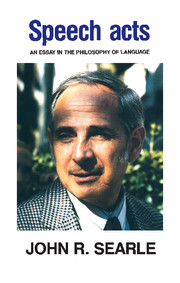8 - Deriving “ought” from “is”
Published online by Cambridge University Press: 05 June 2012
Summary
One of the oldest of metaphysical distinctions is that between fact and value. Underlying the belief in this distinction is the perception that values somehow derive from persons and cannot lie in the world, at least not in the world of stones, rivers, trees, and brute facts. For if they did, they would cease to be values and would become simply another part of that world. One trouble with the distinction in the history of philosophy is that there have been many different ways of characterizing it, and they are not all equivalent. Hume is commonly supposed to have been alluding to it in a famous passage in the Treatise where he speaks of the vicissitudes of moving from “is” to “ought”. Moore saw the distinction in terms of the difference between “natural” properties like yellow, and what he called “non-natural” properties, like goodness. Ironically, Moore's successors, reversing the usual order of metaphysical progression, have read this metaphysical distinction back into language as a thesis about entailment relations in language. So construed it is a thesis that no set of descriptive statements can entail an evaluative statement. I say “ironically” because language, of all places, is riddled with counter-instances to the view that no evaluations can follow from descriptions. As we saw in chapter 6, to call an argument valid is already to evaluate it and yet the statement that it is valid follows from certain ‘descriptive’ statements about it.
Information
- Type
- Chapter
- Information
- Speech ActsAn Essay in the Philosophy of Language, pp. 175 - 198Publisher: Cambridge University PressPrint publication year: 1969
Accessibility standard: Unknown
Why this information is here
This section outlines the accessibility features of this content - including support for screen readers, full keyboard navigation and high-contrast display options. This may not be relevant for you.Accessibility Information
- 2
- Cited by
